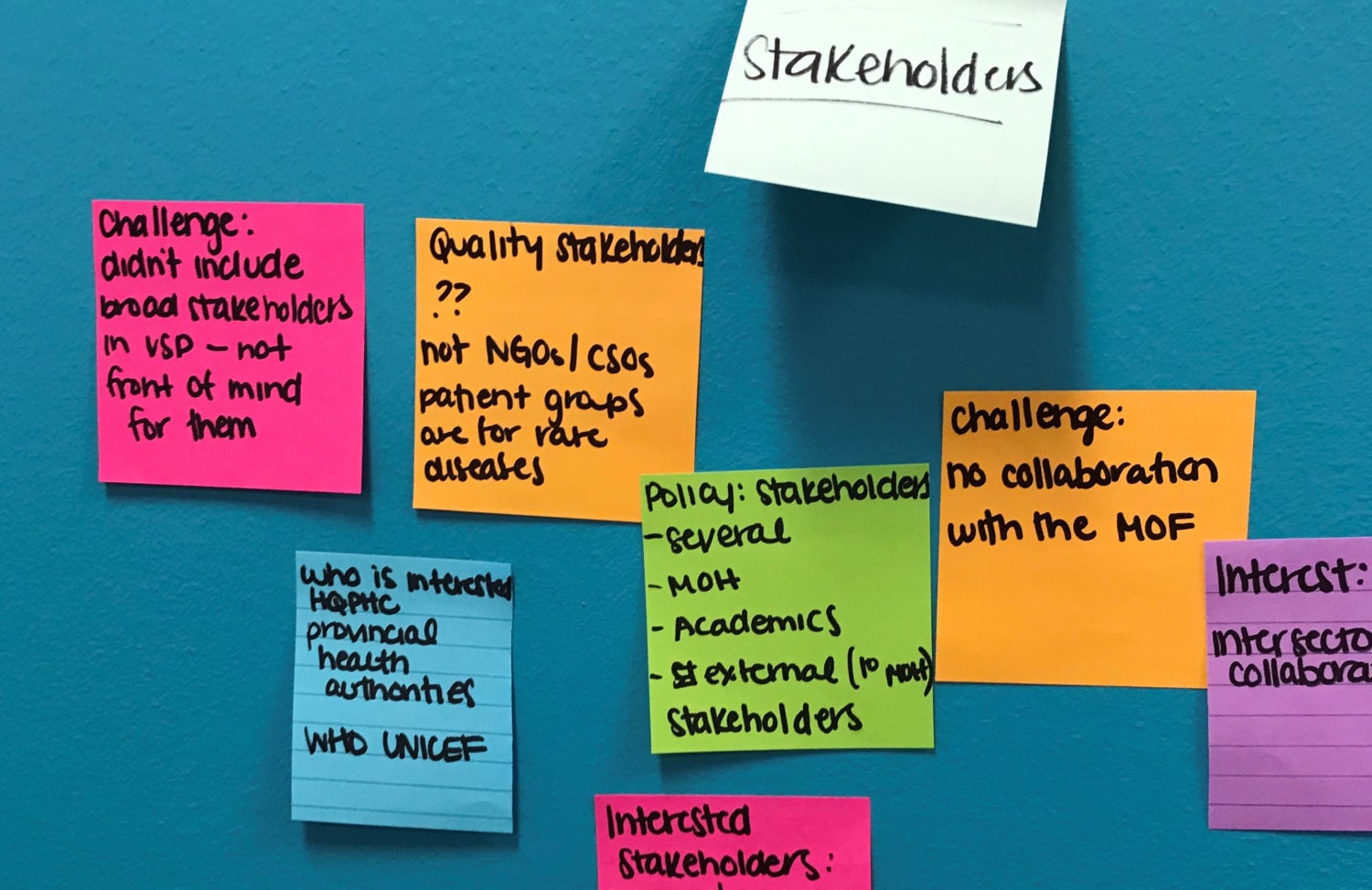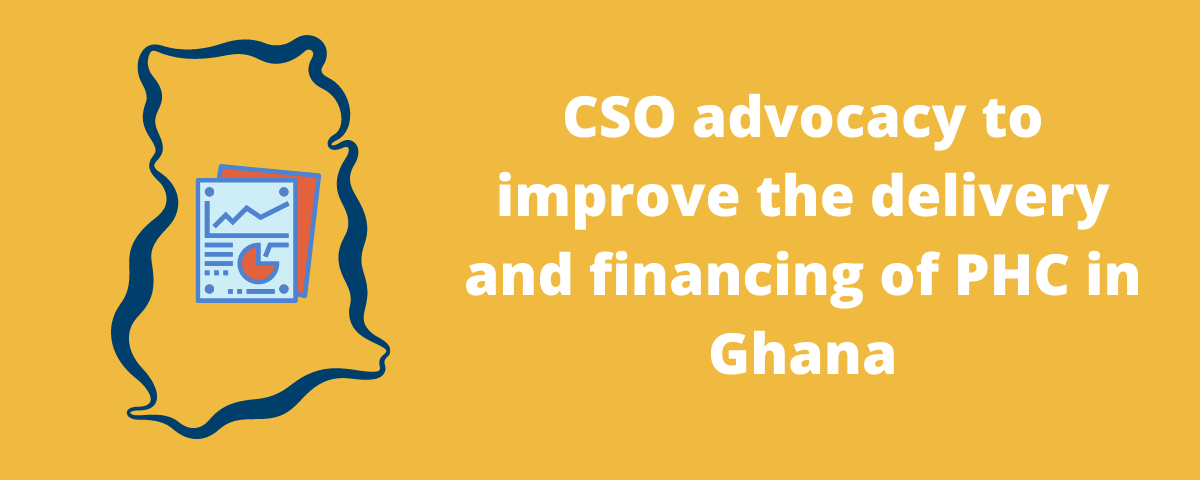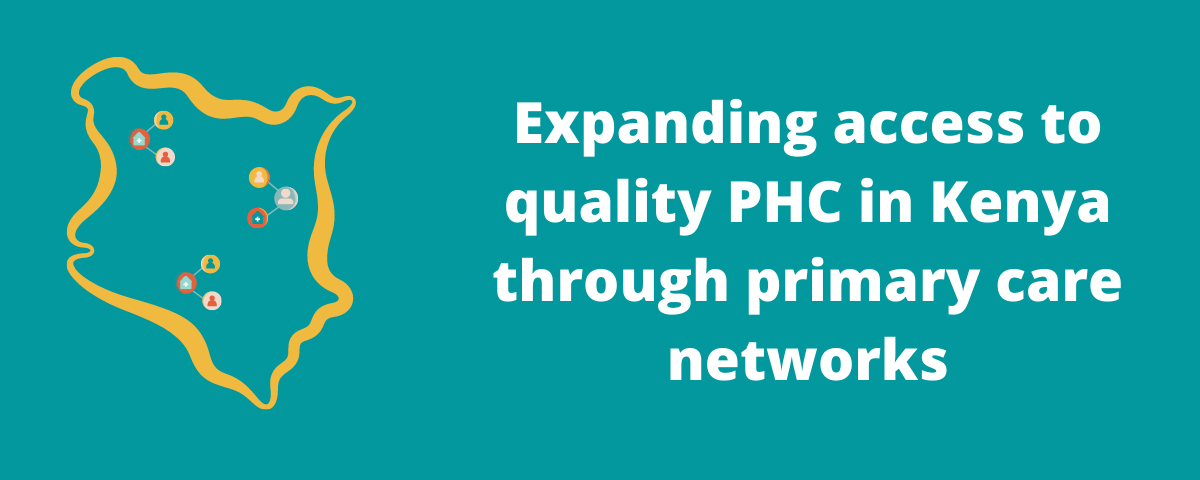Connecting with other PHC stakeholders

PHCPI promoted resource-sharing among policymakers, practitioners, and advocates related to PHC measurement and improvement.

PHCPI promoted resource-sharing among policymakers, practitioners, and advocates related to PHC measurement and improvement.
As countries grappled with COVID-19, strong primary health care provided a critical first line of defense. Around the world, policymakers, practitioners, advocates and others found ways to leverage PHC for pandemic response, and worked to maintain PHC as a comprehensive, coordinated, person-centered resource for people and communities. They also worked to strengthen PHC to ensure systems are in place to respond to future epidemics and other crises.
PHCPI provided a space to dialogue with peers around the world who were working to leverage, maintain, and strengthen PHC during the pandemic and into the future through facilitated Learning Exchanges in collaboration with the Joint Learning Network for Universal Health Coverage (JLN) as part of the COVID NODE and our Online Forum.
In 2020, in partnership with the JLN, PHCPI organized a virtual Learning Exchange to promote cross-country learning and sharing of best practices among a community of policymakers and practitioners with the goal of strengthening public health and primary health care (PHC).
Phase One of the virtual Learning Exchange (October 2020 – May 2021) used a collaborative problem-solving approach where participants brainstormed and crowd-sourced practical solutions to challenges they face in their day-to-day work organized around two themes:
Participants in the Learning Exchanges met monthly to learn from experts in plenary and participate in facilitated peer to peer problem-solving, modeled after Feedback Labs LabStorm. Representatives from participating countries brought forward a challenge they were facing and posed 3 questions to the group, who drew on their own knowledge and expertise to provide reflections and possible solutions.
Phase Two (June 2021 – January 2022) adopted an implementation learning approach by facilitating a more focused, action-oriented learning process at the country-level. Members organized themselves into country teams and proposed implementation cases consisting of their existing work portfolio and identified problems that would benefit from peer input and systematic implementation learning. Three Implementation Cases (IC) were selected:
All three cases were supported by a dedicated technical facilitation team who helped navigate the implementation-related challenges, as well as a group of peer learners—experienced PHC actors from other countries—that accompanied the IC teams through monthly learning checks and contributed their expertise and technical resources.
The three IC teams went through a process to refine their problem statements, outline long-term vision statements, and develop short term outcomes. The teams also developed a causal chain—a series of steps to take to achieve the short-term outcomes. During monthly learning checks, IC teams presented and discussed their progress toward achieving their target outcomes while peer learners and the facilitation team provided advice on addressing their implementation challenges. The IC teams also came together to tackle common challenges during bi-monthly virtual exchanges. These convenings focused on challenges such as strategic communications for domestic resource mobilization, strategic communications to create demand and ensure commitment to PHC, and strengthening referral systems. In an Experience Showcase at the end of the engagement, IC teams presented their most significant milestones, key lessons learned, and major challenges.




